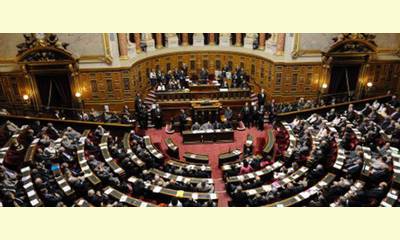|
|
Teacher training in nonviolent conflict resolution (France)
un articulo por Press release from Coordination pour l’éducation à la non-violence et à la paix
The Peillon Act for school reform of the French republic, finally adopted on June 25, establishes "training in prevention and non-violent conflict resolution" for all initial training of teachers and education personnel as well as continuing education through the Graduate Schools of Teaching and Education (ESPE) as mandated by this law (Art. 70, § 15).

Photo of the French Senate
click on photo to enlarge
The Coordination for the education of non-violence
and peace welcomes the fact that these courses in
non-violent conflict resolution will be introduced
in the training of teachers and education
personnel. This was demanded by the national
campaign launched in 2002 that was supported by
many organizations with a petition signed by
thousands of people.
The Coordination welcomes the political engagement
of ministers Vincent Peillon and George Pau-
Langevin and the work of the parliamentary
majority, particularly that of Jean-Pierre Sueur,
senator from Loiret - who filed a bill to this
effect in July 2011, signed by 50 senators and
senators - and the environmental group of the
Senate who requested that these courses should be
included in the law.
These courses will allow teachers and all adults
working in schools to develop or acquire the
necessary skills for making the school a place of
benevolence and human achievement. They will be
key to improving school climate, preventing
violence and promoting student learning.
The Coordination will press for application of the
law in the ESPE by ensuring that its member
associations work for the implementation of these
courses beginning in autumn 2013.
Coordination also hope that very soon the students
from kindergarten to university, can also benefit
from an education in non-violence and peace in their
schools.
(Click here for a French version of this article)
|








|
DISCUSSION
Pregunta(s) relacionada(s) al artículo :
Peace Studies in School Curricula, What would it take to make it happen around the world?
* * * * *
Comentario más reciente:
:
During the Asian Educators Symposium, we found out that Peace Education is still not part of the school curriculum in most countries. However, the participating teachers have been incorporating peace education in their teaching subjects, such as English, social studies, and character education. We all agreed that love and the will to nurture peace in children are the most important basis for peace education. Even if peace education is not a part of the curriculum, peace can be taught through any subject. Whatever you are teaching, if it comes from the heart, then it will touch the minds of children.

|
|









